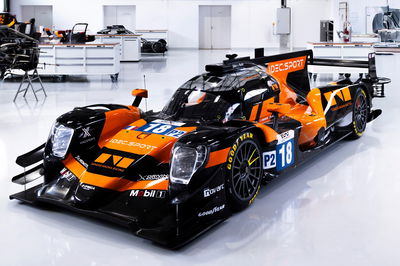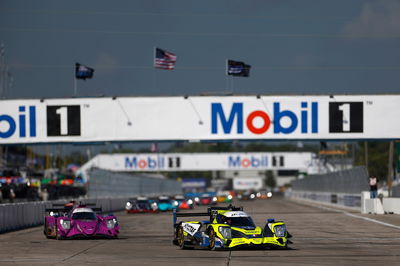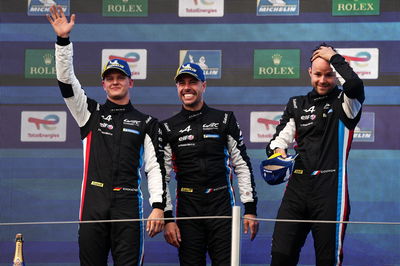Genesis explains two key reasons for ELMS campaign ahead of 2026 WEC debut
Genesis is gearing up for its high-profile sportscar racing programme as Hyundai expands its horizons beyond the WRC.

Hyundai Motorsport boss Cyril Abiteboul has explained why Genesis is joining the European Le Mans Series this year ahead of its factory programme in the World Endurance Championship in 2025.
Hyundai’s luxury car brand will be represented in the ELMS this year, with partner team IDEC Sport entering an Oreca 07 in the LMP2 class for Jamie Chadwick, Mathys Jaubert and Daniel Juncadella under the Genesis Magma Racing banner.
This entry will serve as a precursor to Genesis’ factory effort with an all-new LMDh prototype in the WEC in 2026 and the IMSA SportsCar Championship in 2027.
Abiteboul, who also leads Hyundai’s World Rally Championship team, stressed that taking on the WEC is a major challenge for a marque with no prior history in endurance racing.
As such, it was important for the Korean brand to gain experience in this discipline through a joint effort with IDEC Sport in the ELMS.
Chadwick and Jaubert are a part of Genesis 'trajectory' programme and are contesting a full season in prototypes for the first time, while several engineers, mechanics and strategists will also learn more about endurance racing working with IDEC.
“The idea of starting with Genesis Magma Racing in the FIA World Endurance Championship in 2026 from nothing, with no exposure to endurance racing, quickly became very scary,” said Abiteboul.
“The ELMS is a place for the drivers to prove their talents and make their claim to be a part of the 2026 GMR-001 Hypercar driver lineup.
“It is also an opportunity for everyone involved within Hyundai Motorsport to learn about endurance racing, its code, its requirements, and its community, and understand what we need to succeed when we enter WEC in 2026.
“Of course we want Jamie, Mathys and Dani to deliver strong results, but more than immediate results, it is the general direction in the course of the season we are interested in. For everyone, this is a year for learning because we selected the Trajectory program drivers with an aim of a potential promotion to Hypercar.”

Abiteboul explained that it is also vital for Genesis to build visibility in sportscar racing circles ahead of its step up to the WEC next year.
Not only will the IDEC Sport-run Genesis team contest the ELMS this year, but it will also join the grid for the Le Mans 24 Hours, where factory driver Andre Lotterer will team up with Chadwick and Jaubert in the LMP2 class.
“When we arrive in the Hypercar class of the FIA World Endurance Championship next year, we already want people cheering for us,” said Abiteboul.
“To do that, they have to know who we are, they must know Genesis Magma and Genesis Magma Racing.
“In 2025, we need to introduce ourselves to endurance racing fans at every opportunity and that’s what we will do through this partnership with IDEC Sport, during all the races of the ELMS championship, including the amazing 24 Hours of Le Mans.”
Earlier this month, Abiteboul admitted that a “lack of time” is Genesis’ biggest challenge, with the project having not officially been approved by the board until September last year. This has left Genesis engineers with just 18 months to get the project off the ground and make its debut in the WEC in early 2026.
The team’s LMDh contender will be based on an Oreca chassis and derive power from an updated version of the twin-turbo V8 that powers the Hyundai i20 N in the WRC.
Le Mans veteran Lotterer and Daytona 24 Hours winner Pipo Derani are the first two drivers to have been signed by Genesis for its factory programme in the WEC next year.











